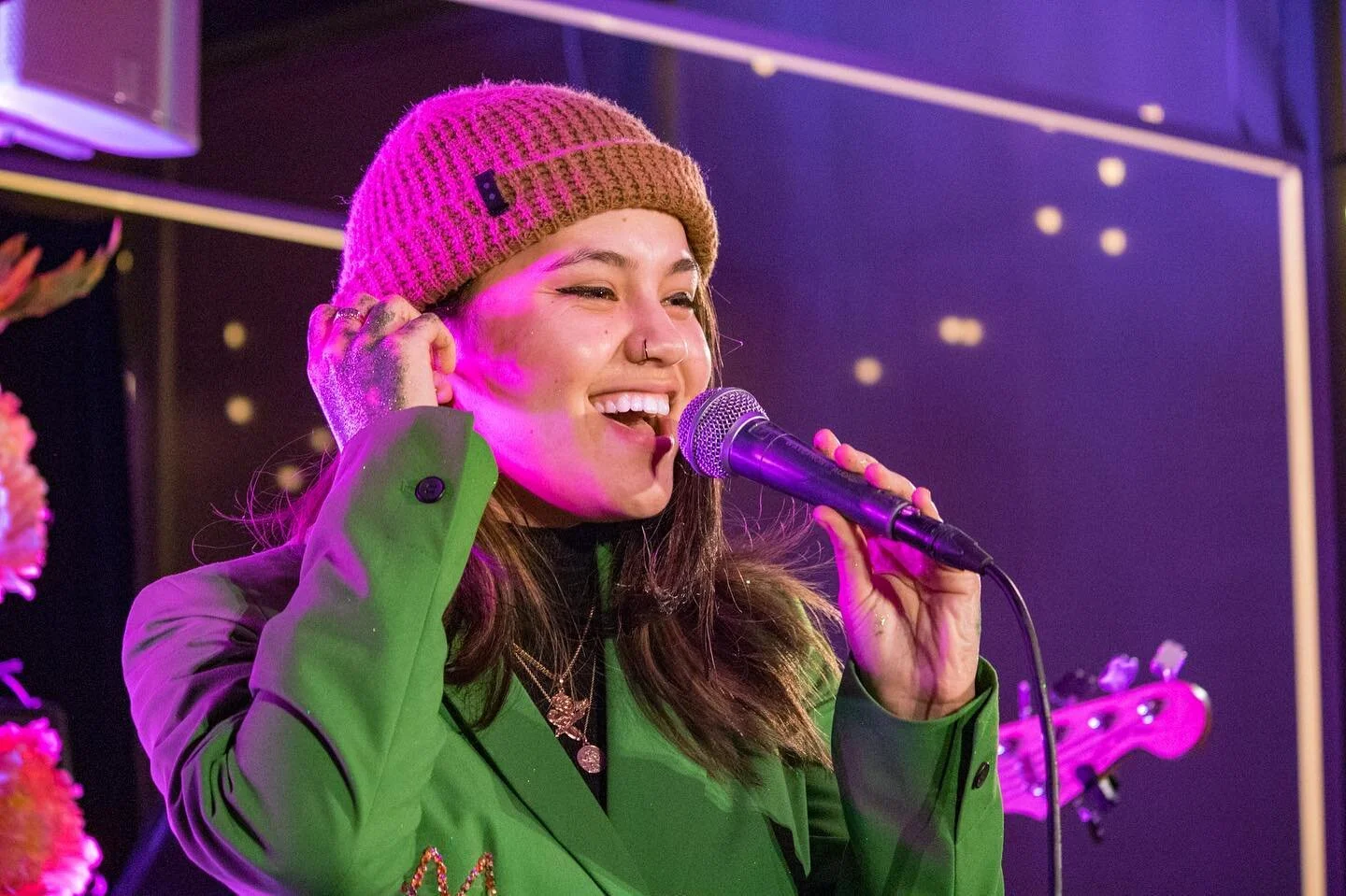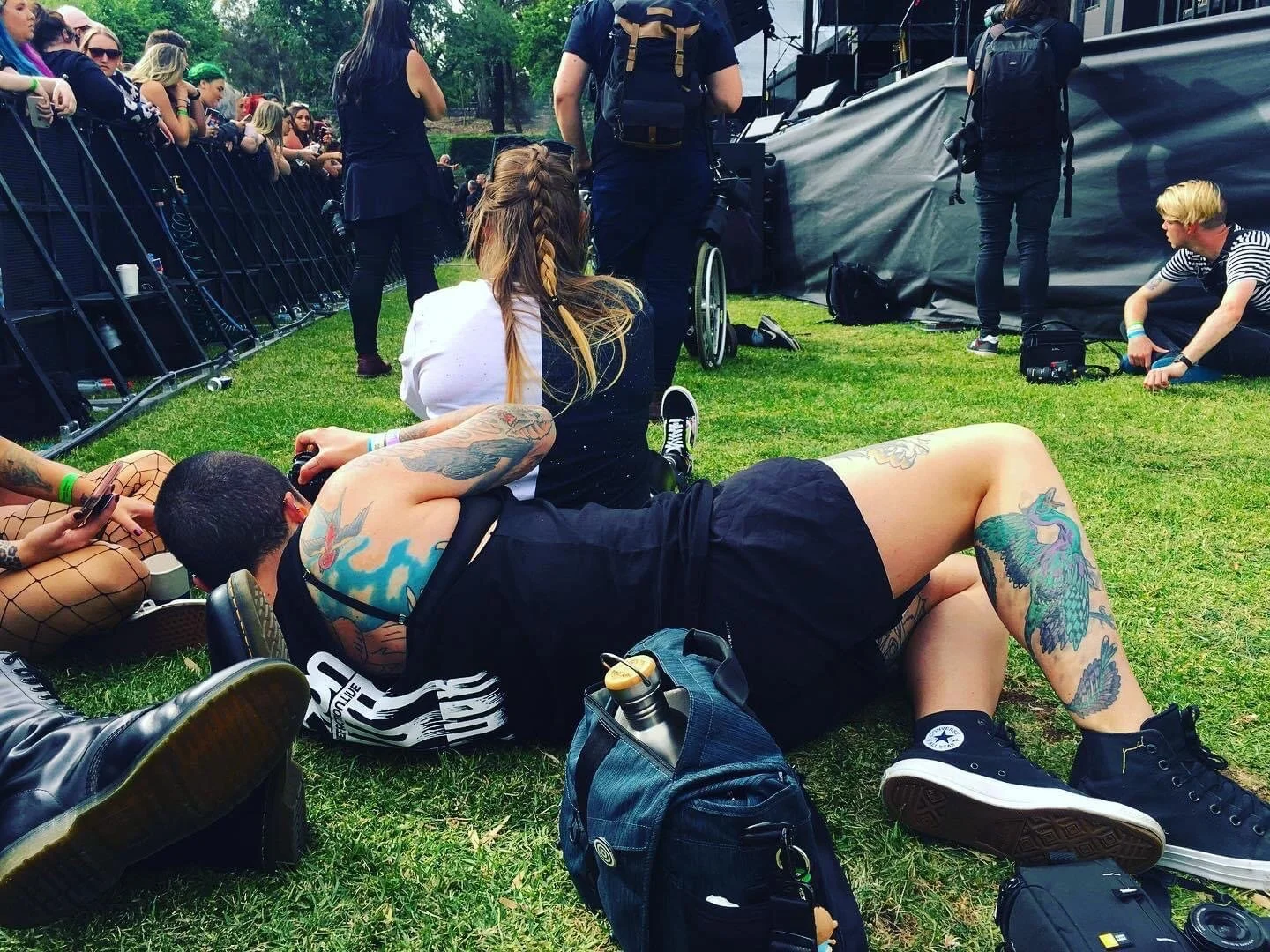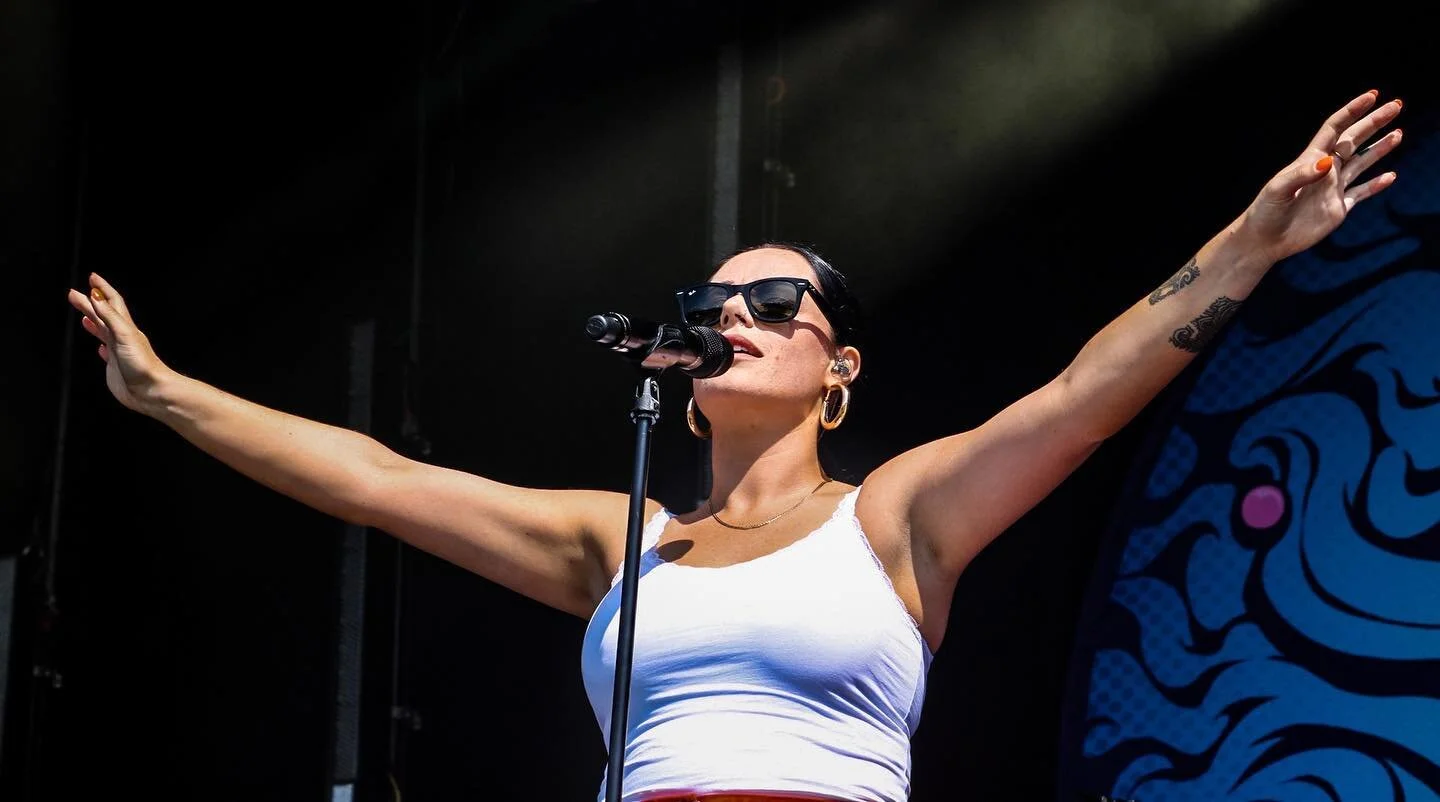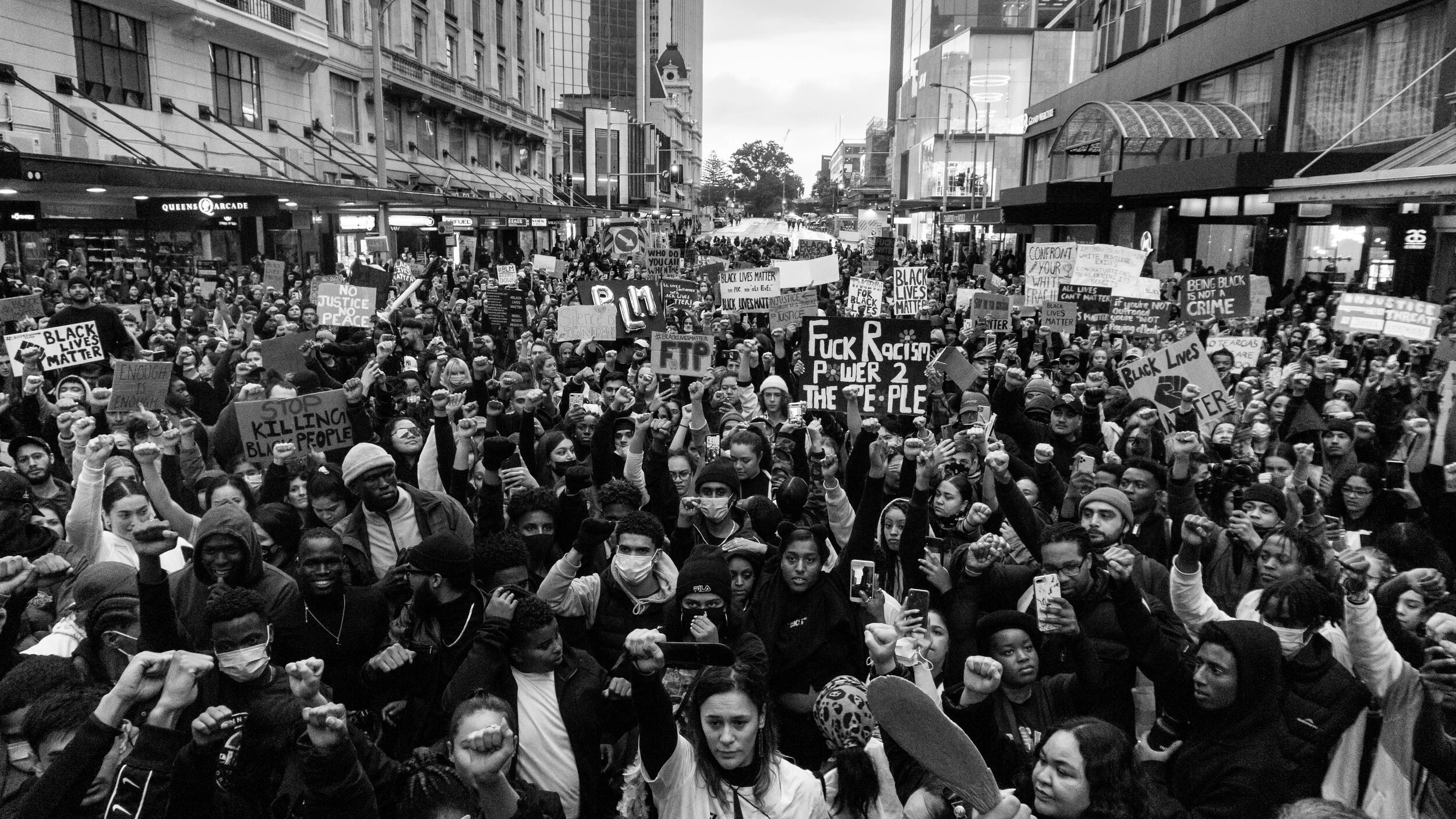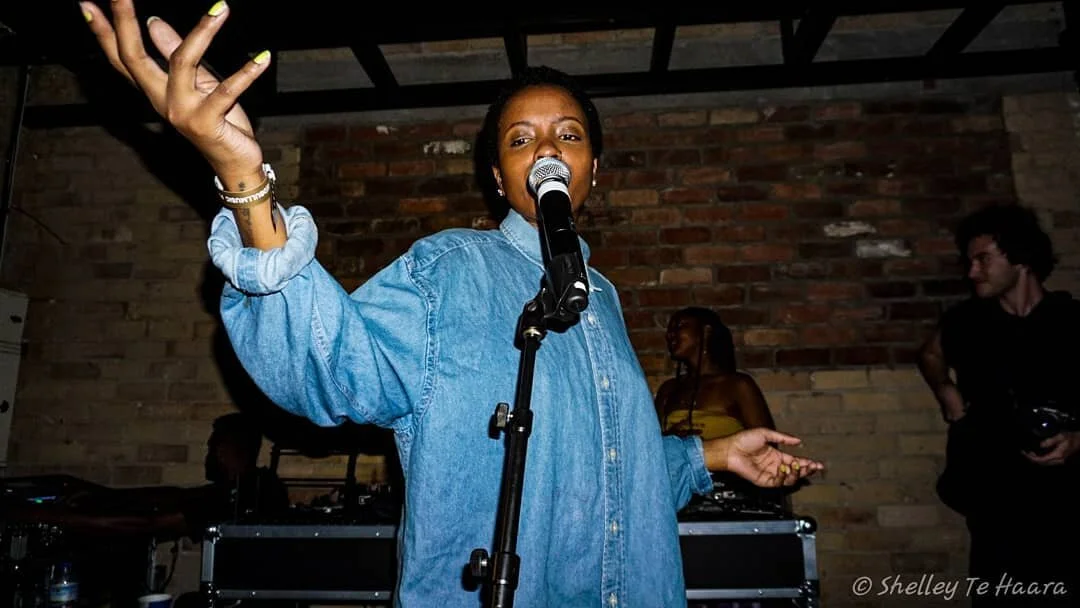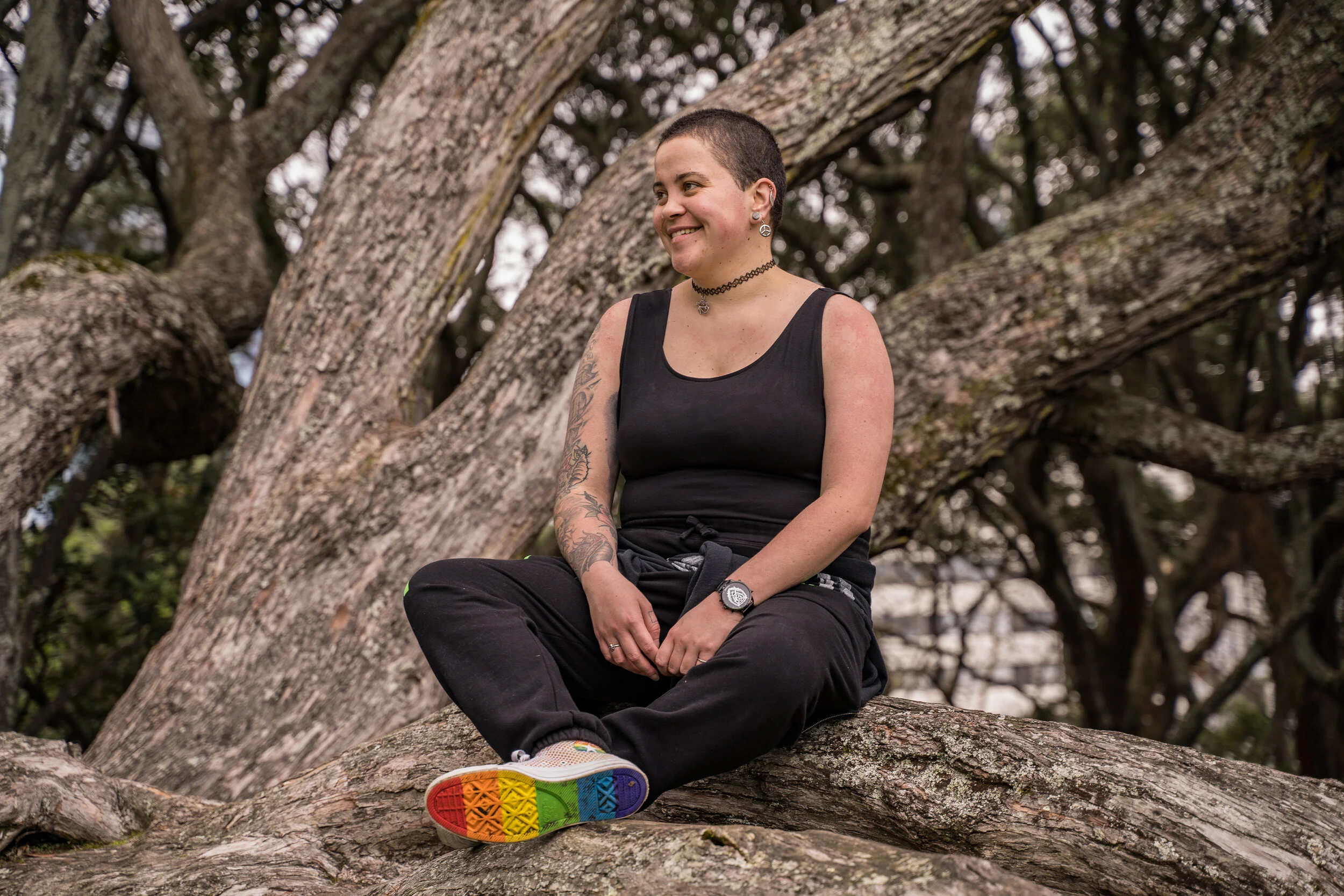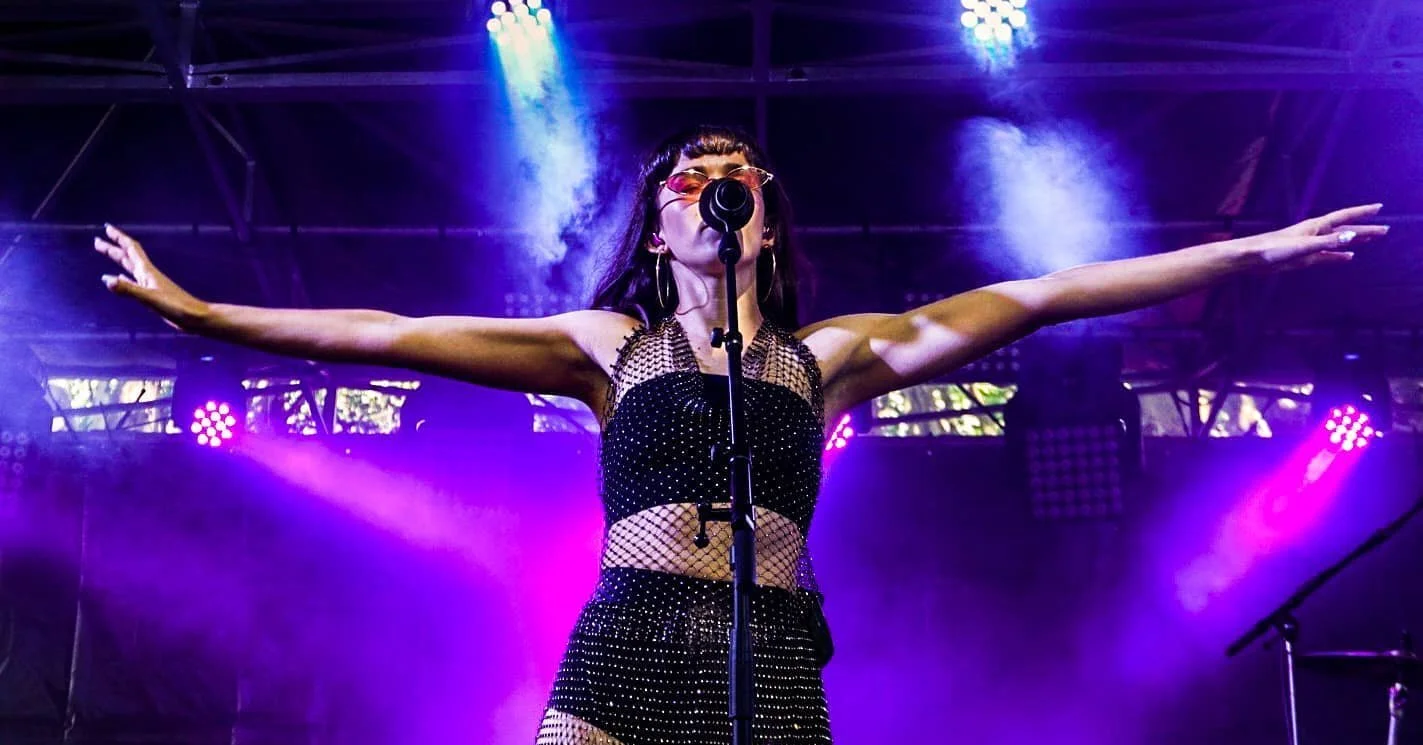Imugi / Photo: Shelley Te Haara
When the lineups for this summer’s hope fuelled music festivals were announced, the low hum of discontent that had been slowly growing louder over recent years became an abruptly amplified growl of feedback. Cooped up at home, connected only by the tendrils of the internet and the glow of their screens, these imbalances were suddenly less likely to slip by unnoticed on people’s timelines.
The worldwide pandemic that had finally closed down our own streets had created a shared struggle. It brought us together in a united desire to emerge out of lockdown into a future better than what we had closed the doors on. An increased amount of both performers and punters were not only noticing the gender imbalance in these festival lineups, but were demanding a ratio of performers that actually reflected the ratio in the crowd.
An unfortunate retort was that our border closure was now forcing music festivals and events to source artists from an entirely local pool and there just weren’t enough non-male DJs and artists to fill those spaces. Of course, the counter-argument was swift. Names of DJs and performers, all women, non-binary or femme-identifying, from a variety of genres and communities started spilling over threads and filling up comment sections.
Into this glorious cacophony of an uprising came the simple but effective idea of a spreadsheet.
Shelley and Marz Te Haara
“To me this is now something to chuck in their faces and say NO EXCUSES!”
Shelley Te Haara (Ngāpuhi, Ngāti Rangi) hails from Ohaeawai in the Far North, but got involved in Auckland’s music scene as soon as she arrived in the city. Shelley’s initial introduction to local music events was through working as a security guard at events but she quickly started using her nights off to attend as many shows as she could. Once her twin sister Marz joined her in Auckland, they both got a lot more serious about their involvement in the music scene, working merch tables and doors at gigs, working at the VNZMAs and helping out however they could. Shelley now reviews and photographs events, runs her own music blog, manages local artists Dharmarat, Valleyside Boys and Full Bloom, and has her own radio show.
Watching all these names of non-male performers and DJs fill up multiple online spaces, Marz suggested they actually collect all these names, collate them into a publicly accessible spreadsheet and send out an invite for more names. The spreadsheet was to exist not only as a resource for anyone looking for DJs and performers but also as an immediate comeback to anyone who says there aren’t enough women to fill up a lineup.
Paige / Photo: Shelley Te Haara
Te Haara gets very transparent when asked about the motivation for the spreadsheet and admits “It honestly came from an angry place for me. Before all this, I actually did a post about some of the things I don't like about the music industry. So when this came up it was a bit of fuel to the fire”. Speaking on the pushback a lot of people in the music industry responded with, Te Haara says, “Non-male identifying musicians getting festival slots and just opportunities, in general, is difficult. As we know this has been problematic with festivals - there's literally an Instagram account for it (I love it!) - Lineups Without Males. But when the discussions started happening during lockdown the same excuses come up: They weren't available, we can't find any, they don't suit our festival, etc. Then their defense was, “oh our lineup may be lacking but our crew isn't”. Which also isn't 100% accurate, they are still male-dominated”.
So a publicly accessible Google form was launched. A link anyone could easily follow to add their own name or the names of DJ and musicians they knew and the genre they mainly sit in, along with the artists’ social media details so they could be easily contacted by the people curating the lineups. The idea was to eliminate as many perceived hurdles as possible. But why did any of this matter? Why does it even matter how many women and people who don’t identify as male are on a lineup? Te Haara explains, “...It's important because not only does it create equal opportunities but it just creates better environments. Bringing non-male identifying people into the crew and onto the stage will actually give you so much more of a work dynamic. I believe it creates a balance in an environment … This also just empowers others to see they can do it too! People are empowered by seeing people like themselves in these roles. If it wasn't for the female photographers I followed, who I saw touring the world etc, I probably wouldn't pursue my photography as much as I do”.
Bailey Wiley / Photo: Shelley Te Haara
As for the public reception of the spreadsheet, Te Haara says, “It blew up! Originally I created the list for musicians and just said, here it is, add yourselves. Then the mention of crew came up so I made separate tabs. It is incredible to see where it's at now”. There were some issues however, when some men took offense to a industry directory that didn’t include them. “We did have to shut it down (temporarily) due to males adding themselves (that honestly blew my mind, like back off!) But people can still add to it via the Google Form. ”To me, this is now something to chuck in their faces and say NO EXCUSES!”
Of course, the deluge of male names isn’t the only imbalance critics noticed in recent line-up announcements. The men getting booked tend to be more often white men. A fact the Te Haara twins were already well aware of. “I think the line-ups and just festival environments in general lack in diversity in a huge amount of ways. But in regards to people of colour, the blunt (and probably super rude) way of saying it to me is, white men booking white men. Then I find when it is artists of colour, it's usually rappers or more international acts, not necessarily locals”. Shelley then made the point that your lineup can then attract a particular demographic.“Not only are line-ups majority white males, they are cis & hetero males... Then this gets reflected in the crowd as well” .
Photo: Auckland Black Lives Matter March 2020, Shelley Te Haara
Of course, the lack of diversity doesn’t end there. People calling out the lack of non-male identifying artists noted the artists getting booked were not only white, male artists but overwhelmingly cis and straight. “That lack of inclusion in the LGBTQ+ community is obvious as well. I recently had a person who works for a festival tell me they are inclusive and welcome all people. That may be the case but they don't find your festival safe and that is not reflected in the line-up or festival either. Putting a rainbow flag up doesn't make you an ally and the way your punters wave them around like they're fun nik-naks is tacky. This community of incredible people fight every day to be given the same rights as all of us and just to live their truth. There is so much more festivals can be doing. In summary, FESTIVALS NEED TO BE INCLUSIVE ACROSS THE BOARD!”
Jane Deezy / Photo: Shelley Te Haara
When looking to the future and what she’s hoping this resource will achieve Te Haara has big but realistic hopes. “I think people assume I’m saying there should be a 50/50 split. I don't expect that. Though in saying that, Rhythm & Vines has made a solid effort in not only having a diverse lineup musically but practically being 50/50 (I counted haha). So many of these festivals and big shows use the same chart-topping, label-connected bands and there's just so much more than that. These numbers don't fluctuate and all I'm asking is that they try! What I would like to come from this is that people consider other acts and workers - Equal opportunities. But also create a better, safer & inclusive environment. Some of these festivals are horrible to attend as a punter and definitely as a female”.
Shelley Te Haara’s tips for event bookers/ promoters grappling with this issue:
Test those waters with your shows: I think festivals and club promoters just need to try add a non-male identifying act or an act that has a non-male identifying member. It's not hard to just give it a go.
They also just need to be straight up! Don't pretend you care about all these issues when you don't. Getting defensive while being repetitive just makes you look like a tool. For example, if you like using these acts over and over 'cause they promote your stuff or whatever just say that. Why tip-toe or get defensive about it? You're clearly not changing so just embrace what you want to do. Your defensiveness makes it so much worse.
Look at your show or festival as a whole! Understand the influence and platform you have. Some of these festivals are the most toxic and non-inclusive environments I've been in and your lineup can have an influence on that!
Robinson / Photo: Shelley Te Haara
You can access and submit names for Shelley’s spreadsheet of artists here.
Tune into Shelley’s Shuffle Mondays 12PM - 2PM on Rawkus Radio


